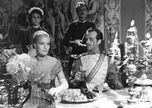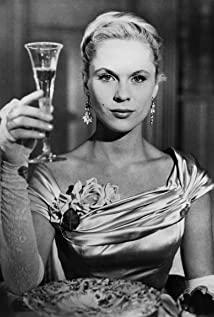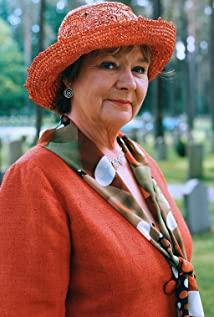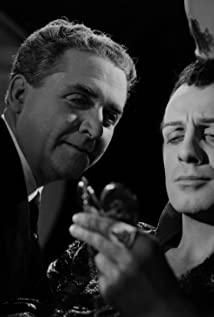Egerman can be said to be the protagonist of this movie, and all the clues of the story are unfolded by him. Egerman is a person who plays the world and pursues pleasure. He does have all the capital to maintain such a life, strong economic strength, and handsome appearance. Charming temperament, elegant and decent manners. He treats everything in life with ease and carelessness. Of course, if you can treat everything in the world with a less serious attitude, then, of course, there will be no trouble and distress in the world. (For example, when dealing with love issues, he taught his son Frederik not to take love issues seriously). But his mistress Desiree finally asked him to tear off his mask. It turned out that this person was only cynical on the surface. He was worried that his mistress had other mistresses. The only concern is when will his "little wife" fall in love with him. (Have not shared a bed for two years after living together), Desiree was amazed by this, "Why did the wolf suddenly turn into a sheep?" I think Bergman wants to show that everyone is multi-faceted. Egerman actually yearns for pure love, but He just didn't want to be known.
Desiree, a woman who is not too young, but still has a charm, her behavior between two lovers can be regarded as an old woman showing off to the outside world that she still has a lot of youthful charm to squander. Does he love Egerman? I think so, that's why she's playing that "take him back" game with her rival. I even seriously doubt that the kid is Egerman's. When it comes to children, Desiree keeps her strong motherhood in her heart and doesn't want to be known. That's why she slaps Egerman when he says she's "unfit to be a mother" (here seriously doubts Egerman's EQ and IQ).
What about the Earl of Malcolm? Reputation is very important to him, so he can't stand his mistress having another lover, and he can't stand his wife arguing with him about his mistress, because it's all very bad for him Yes, but what about women? He also loves both, so his troubles have to continue.
What about the countess? I think she loves her husband deeply, and her monologue in the movie expressing her hatred of men can be seen as a confession of her husband's "deep love and pain". Therefore, she can endure playing with her man in front of his mistress, and even join forces with the person she hates most in order to get her man back. But is he worthy of love? Of course, we can say that love is blind, but isn't it stupid to love someone who shouldn't love like this?
The duel was funny because the count didn't put bullets in the pistol, but soot, and he didn't take it seriously. Faced with the question of life and death, it was ruthlessly torn down. The count seems to have won, has his wife won the game? Is his vow to his wife faithful? It doesn't seem to be, it's more like a child's play between two people. But the countess can happily tell herself: "He still loves me." Although she herself knew that this was against her will.
Egerman seems to have lost the duel, but this once timid guy bravely faced the duel, although forced, although he lost the duel, and lost the duel, but in the end he won the heart of Desiree.
Egerman's son Frederik and Egerman's wife Anne, they are very innocent, but Frederik's innocence can't release his heart and dare not let himself fully enjoy the happiness of his soul and body brought by love. What about Anne? She seems to have been deliberately closing her heart, treating herself as an innocent child, unwilling to grow up. But this time, the God in Bergman's film didn't embarrass them, (unlike the God in Bergman's later films), he humorously arranged a "bed of love" for them, so that they could go to the other side of love smoothly.
What about Petra and Henrik? I think Bergman sees these non-hypocritical, non-pretentious social workers as the hope of the world, (he actually despises these hypocritical bourgeois people,) that's why he arranges Petra and Henrik to jump on the grassland at the end A "dance of love", singing a "hymn of love".
View more about Smiles of a Summer Night reviews











